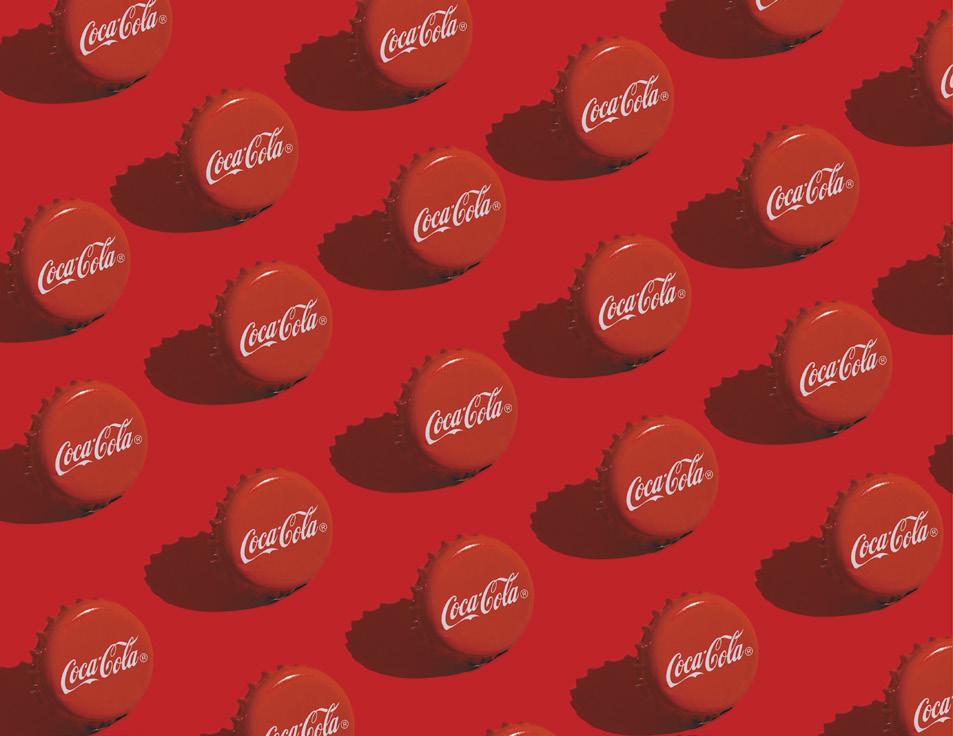www.cjpsales.co.uk | Specialists in technical polymers
FEATURE
O OKAY… THIS ISN’T REALLY ABOUT PITTING THE TWO FIRMS AGAINST ONE ANOTHER. THE PEPSI CHALLENGE, WHICH WAS STARTED IN 1975, IS ALL ABOUT THE TASTE – WE’RE JUST INTERESTED IN THE PACKAGING.
8
I
Major beverage brands are fizzing with enthusiasm at the prospect of having the greenest possible packaging.
n recent weeks, both PepsiCo and Coca-Cola have taken new steps towards greener packaging. And when the big brands set the standard, the rest of the market tends to follow. Let’s start with PepsiCo. The group has announced a project in which it will use UBQ material developed by an Israeli startup of the same name to develop a sustainable pallet that uses unsorted household waste, including organics, in its composition. During the manufacturing process of UBQ material, waste is diverted and greenhouse gas emissions are prevented. In this initial project, the material implementation saves the equivalent of more than 6,500 kg of GHG emissions - the equivalent of the annual carbon sequestration of 534 trees. More than 739 kg of mixed waste will be redirected from landfills, looped back into the material as a valuable resource. The pallets are developed by PepsiCo’s partner Ecoboxes Embalagens Plásticas, which specialises in solutions focused on sustainability and circular economy. The UBQ material is a bio-based thermoplastic converted from 100% unsorted municipal solid waste, including mixed plastics, paper, cardboard, and organics, and is suitable to substitute conventional polymers in various durable applications. The first phase of the PepsiCo project includes the manufacturing of 830 ecological pallets for use in two of the company’s logistics centres. In addition to UBQ, the pallets are made from recycled materials that include recycled PP resin and recycled BOPP (a plastic film used in the company’s snack packaging), which completes the circular economy cycle. “This innovation is very exciting for PepsiCo because it helps us on our journey through materials that replace virgin plastic while at the same time working on CO2 reduction. In addition, this is a
differentiated material because it represents an alternative to the chain as a whole, especially with regard to collection, sorting, transportation and final disposal in landfills. Now we will go further, scale this solution in Brazil, Latin America and why not in other parts of the world,” said Raphael Cyjon, senior director of operations at PepsiCo LatAm. So what about Coca-Cola? The company’s sustainability strategy is split into three core pillars: design: all of its primary consumer packaging to be recyclable by 2025, and using 50% recycled material in its packaging by 2030; collect: collect and recycle a bottle or can for every one the group sells by 2030; and partner: “bring people together to support a healthy, debris-free environment.”. Well, the firm has now added to this strategy a brand new pledge, which made headlines around the world: by 2030, the company aims to have at least 25% of all beverages globally across its portfolio of brands sold in refillable/returnable bottles (including plastic bottles), or in refillable containers through traditional fountain or Coca-Cola Freestyle dispensers. According to the Ellen MacArthur Foundation (EMF), cited in its Reuse: Rethinking Packaging report, converting 20% of global plastic packaging into reuse models is a $10 billion business opportunity that benefits customers and represents a crucial element in the quest to eliminate plastic waste and pollution. “Reusable packaging is among the most effective ways to reduce waste, use fewer resources and lower our carbon footprint in support of a circular economy,” said Ben Jordan, senior director, packaging and climate, of The Coca-Cola Company. “We will continue to highlight markets that are leading the way with reusable packaging best practices, and to support other markets as they increase their use of reusable packaging,” Jordan said, adding that each market will approach the goal in a different way.
www.britishPLASTICS.co.uk




